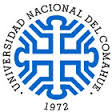JavaScript is disabled for your browser. Some features of this site may not work without it.
| dc.creator | Flores, Marta | |
| dc.date | 2023-08 | |
| dc.date.accessioned | 2023-09-22T14:06:47Z | |
| dc.date.available | 2023-09-22T14:06:47Z | |
| dc.identifier.issn | 1578-4282 | es_ES |
| dc.identifier.uri | http://rdi.uncoma.edu.ar/handle/uncomaid/17418 | |
| dc.description.abstract | El presente artículo se encuadra en una investigación sobre el trabajo artístico independiente y el asociacionismo, en tiempos de pandemia y postpandemia, en la Norpatagonia argentina, esto es, en un circuito lejano a los centros culturales hegemónicos. Nos centraremos en el análisis de un conflicto que estalló en el terreno virtual, un grupo de WhatsApp. Para ello, deberemos partir del estudio de los valores enarbolados por los protagonistas del enfrentamiento. Ello nos permitirá comprender, no sólo la virulencia de los intercambios, sino también los acuerdos previos y posteriores. Pero, también, abordaremos la citada mensajería instantánea, en tanto escenario de disputa y, también, los condicionamientos que produce sobre las lecturas del conflicto realizadas por los/as integrantes del colectivo. | es_ES |
| dc.description.abstract | This article is framed in an investigation on independent artistic work and associationism, in times of pandemic and postpandemic, in Argentine Norpatagonia, that is, in a distant circuit to the hegemonic cultural centers. We will focus on the analysis of a conflict that erupted in the virtual field, a group of WhatsApp. To do this, we must start by studying the values raised by the protagonists of the confrontation. This will enable us to understand not only the virulence of trade but also the previous and subsequent agreements. But, also, we will address the aforementioned instant messaging, as a dispute scenario and, also, the conditioning that produces on the readings of the conflict made by the members of the group/s. | es_ES |
| dc.format | application/pdf | es_ES |
| dc.format.extent | pp. 201-214 | es_ES |
| dc.language | spa | es_ES |
| dc.publisher | Universidad de Jaén | es_ES |
| dc.relation.uri | https://dx.doi.org/10.17561/rae.v23.7496 | es_ES |
| dc.rights | Atribución-NoComercial-CompartirIgual 2.5 Argentina | es_ES |
| dc.rights.uri | https://creativecommons.org/licenses/by-nc-sa/2.5/ar/ | es_ES |
| dc.source | Revistas electrónicas Antropología Experimental. Núm. 23 (2023) | es_ES |
| dc.subject | Antropología | es_ES |
| dc.subject | Antrhopology | es_ES |
| dc.subject | Trabajo artístico | es_ES |
| dc.subject | Artistic labour | es_ES |
| dc.subject | Normas | es_ES |
| dc.subject | Rules | es_ES |
| dc.subject | Conflicto whatsapp | es_ES |
| dc.subject | Conflict whatsapp | es_ES |
| dc.subject | https://purl.org/becyt/ford/5.4 | es_ES |
| dc.subject.other | Ciencias Sociales | es_ES |
| dc.title | El WhatsApp acusado de brujería. Trabajo artístico solidario, chisme y conflicto en la virtualidad postpandémica | es_ES |
| dc.type | Articulo | es |
| dc.type | article | eu |
| dc.type | acceptedVersion | eu |
| dc.description.fil | Fil: Flores, Marta. Universidad Nacional del Comahue. Facultad de Derecho y Ciencias Sociales; Argentina. | es_ES |
| dc.cole | Artículos | es_ES |



